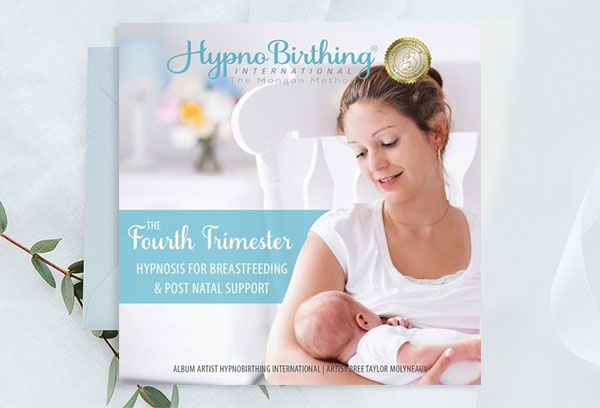The postpartum period is a unique time of healing and transition. Infant development is taking place, early parenting is taking flight and you might be thinking, “what day is it?” #babybrain
Western medicine refers to postpartum as a 6-8 week period after a baby is born. However, many report that it lasts much longer than this. The full transformation into parenthood can occur over several months, or even years, and this is perfectly normal.
There tends to be a popular narrative that you will only ever feel exhausted & overwhelmed after the birth of your baby. And you might even feel an underlying pressure to ‘bounce back.’
Whilst we are not denying that being a new parent for the first time, or again might be challenging, we prefer to connect with our true innate selves, channel our own inner strength and move into parenting from a place of empowerment, love, and confidence.
Planning for your postpartum period can provide more space for the much-needed healing to take place, and less room for fear, pressure, expectation, judgment, resistance, and stress.
Focusing on extra care during this vulnerable time, especially during the first 4 weeks postpartum, can go a long way toward enhancing your own health, as well as the health of your newborn baby.
The Golden Month
The Golden Month is a time when the birthing parent is given special care, food, and support to enhance recovery. It allows for more time to adjust to the new role regardless if this is the first or third child. It is important to remember that every child, pregnancy & childbirth will be different and therefore the needs during this time will also differ from experience to experience.
It is a time to recuperate and to restore physical & emotional wellbeing, which are two very important factors to promote a smoother journey into parenthood.
This includes extra rest, focus on nourishment and hydration, support and community just to name a few.
Having a general postpartum recovery plan is extremely helpful to ensure that your environment is set up to support you as you navigate the rapid changes and energy demands of life with a newborn.
The emphasis can then be placed on the sacred bonding and growth as a family, and promote a more peaceful and positive birth recovery.
Where to start
In this post we are going to explore some of the things to consider for your plan that can help you to feel more at ease, supported and confident during your Golden Month.
Optimizing rest
Rest, rest, rest. Your plan is ultimately created with rest as one of the highest priorities. We cannot emphasize this enough. Start thinking about your bedroom set-up and bedding for alternate sleeping arrangements either for yourself or other family members when need be. This can help to allow for sleeping and rest in relation to feeding and bonding time. And it is also important that all members of the family get adequate rest.
Nourishment
It is incredibly important to be getting the essential nutrients required for tissue repair, organ, and joint health, as well as a robust blood and immune system.
And one of the greatest things you can do to maximize rest and bonding time as mentioned above, is meal planning and/or organizing a meal train.
Meal Trains – One of the best ways family and friends can support you and your new family is to provide regular, hot, and nourishing meals. You can either do this with a signup sheet shared with those who are able to assist or utilize a meal train service through a small business. Hint: this makes a great baby shower gift!
Meal Planning – Preparing large batches and stocking the freezer with freezer-friendly food and snacks prior to the baby’s arrival is essential to minimize any extra stress. Ready-made smoothie bags, soups, stews, lactation cookies, and energy balls are all great ideas. Focus on easy to eat, one-handed food.
Also stock up on herbal teas to aid essential hydration, to support lymphatic drainage (to help plugged ducts, sore nipples, mastitis), and promote milk production. We also suggest some lovely relaxing teas to reduce stress and promote a sense of calm. The range at One Leaf at a Time organic teas are good to pick from.
Support
Address your expectations in advance for how you might like family and friends to support you during this time, and initiate some clear and open conversations to establish the capacity for others to assist. This might include:
• Times and durations of visits
• Off-site tasks, errands, or logistical support that others could realistically provide
• Transportation aids (especially for cesarean births) physical assistance or other essential support especially for c
• List support services and who to call to get good information if you need help. This includes your health care provider, postpartum doula, lactation consultant, naturopath, and pediatrician.
How can visitors also be of help when they visit and not only a “guest” that you may feel you need to ‘host’? Could they help with the following?
• Assisting at mealtimes, nappy changes, setting up the feeding station
• Feeding the baby with expressed milk if needed
• Assisting with household chores
• Facilitating safe and comfortable sleeping, playing, and eating spaces for everyone
• Managing older child care and schedules
Bodywork and holistic therapies
Start thinking about your post-birth healing with treatments such as:
• Factoring in time for warm herbal sitz baths (in the early days) to heal and cleanse the area around the perineum
• postnatal massages
• belly binding
• womb healing
• acupuncture and TCM
• chiropractic care
• Biodynamic craniosacral therapy
If you haven’t already, then this can be a great time to set up as many pre-payments and automatic billing where possible.
And it might go without saying, but minimizing your calendar for as long as possible and pre-booking any necessary appointments in advance can be priceless during this special time.
Let’s remember…..
There is no ‘perfect’ postpartum plan. And preplanning is certainly not intended to create extra stress during your pregnancy. You can always change and adapt and personalize things to suit your own individual circumstances. Being proactive now leaves you more headspace to enjoy your precious new bub later.








